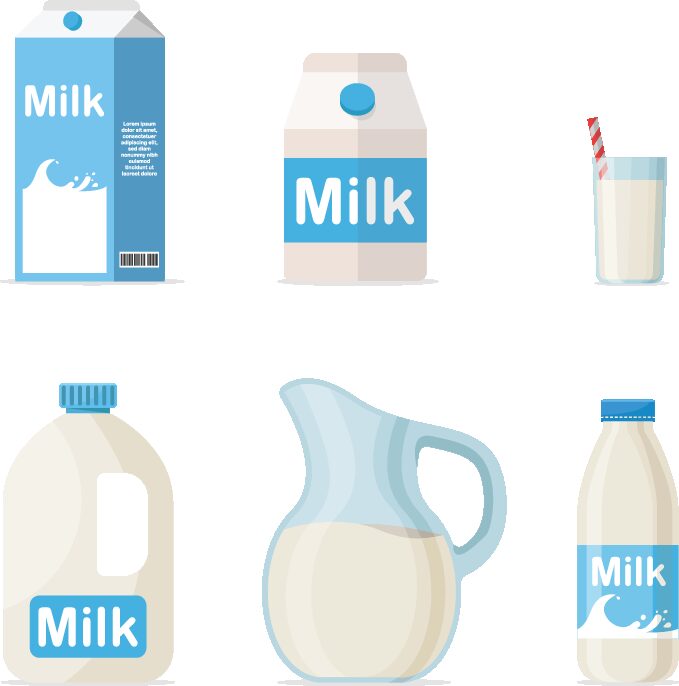
Heartburn is not really a heart condition.
The discomfort of heartburn is caused by your stomach acids coming back up (refluxing) into your esophagus – which is located directly behind your heart.
Milk may seem like a cooling and soothing treatment for this burning sensation, and it might provide a few moments of relief, but it can also make matters worse.
How Your Diet Affects Your Heartburn
When you eat, stomach acid and digestive enzymes come into the stomach to break down your food – especially the proteins – into smaller bits that can be absorbed and reused as ingredients for new cells and tissues.
While the stomach’s lining can safely handle this corrosive acidity, your esophagus, intestines, and other organs, cannot.
Where your esophagus and stomach connect, there is a muscular valve, the lower esophageal sphincter (LES), that opens to let food into the stomach and then closes to keep your stomach’s acid in your stomach.
As we get older and bombard our system day after day with clumps of food that is not thoroughly chewed, spicy foods, alcohol, soda, coffee, and hot temperatures, the muscle fibers of your LES weaken.
If your LES cannot squeeze itself closed properly, stomach acids can splash back up into your esophagus, leading to symptoms like:
- heartburn
- chest pain
- coughing
- nausea
- sore throat
- hoarseness
- back pain
Fatty and high-protein foods will stimulate the stomach to secrete higher levels of acid, so once this sphincter has become weakened, those triggers will be even more likely to cause heartburn.
Milk and Heartburn
Dairy milk contains high quantities of protein and fat, so even if it provides you with a moment of relief, your stomach will need to make more acid to digest it, and that acid can quickly end up refluxing into your throat.
Antacids are commonly made of calcium carbonate, and also, high calcium intake appears to reduce the risk of one type of reflux disease (non-erosive reflux disease). Dairy products are high in calcium, so this may be why there is some belief in milk being helpful for heartburn.
However, it may be more likely that drinking milk will increase the burning feeling in your chest because it increases stomach acidity and slows down stomach emptying.
Substitutes like almond milk might be more relieving, as it has much less acid-stimulating protein and is alkaline, meaning it can even reduce acidity.
Healing Gastroesophageal Reflux Disease (GERD)
If you continue to consume foods and drinks that aggravate your esophageal sphincter and trigger stomach acid production, your condition will likely get worse.
If you change your eating habits, your throat muscles can heal and strengthen, restoring your LES’s ability to keep the acid in your stomach where it belongs.
Always chew your food into a smooth paste.
Avoid milk, soda and alcohol, and fatty, fried, and spicy foods for a few weeks to see if it helps.






















